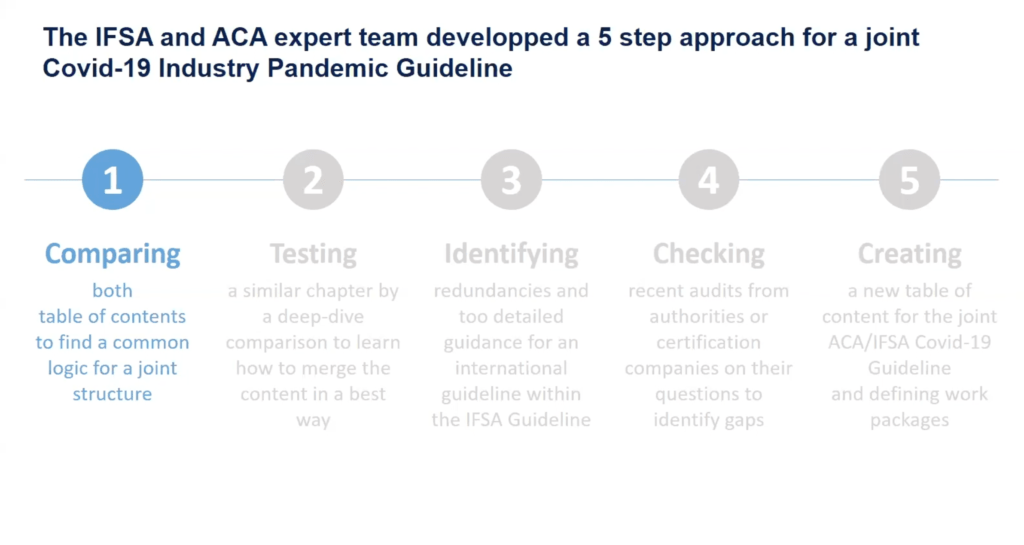Common Ground: ACA and IFSA Establish In-Flight Catering COVID Guidelines
Share

On a panel at Virtual Expo, ACA and IFSA agreed on guidelines that would see members of each group reading from the same page when it comes to COVID-19 dos and don’ts. This article originally appeared in Expo Daily Experience. Read the full issues and register for FTE APEX Virtual Expo — the platform will remain open as a resource until January 8.
Aviation regulations can be a tangle of duplications and contradictions, but the goal is always to ensure passenger safety. With new requirements to deal with the coronavirus coming in on all fronts, the Airline Catering Association (ACA) and International Flight Services Association (IFSA) agreed to a harmonized set of guidelines for up-in-the-air catering based on best practices and updates from government authorities.
One of the objectives was to ensure that the different COVID protocols laid out by the Occupational Safety and Health Administration, Centers for Disease Control and Prevention, and US Food and Drug Administration could be adapted to international guidelines. The document itself covers everything from catering and personnel management to purchasing, all of which have been affected by the pandemic. It addresses hygiene requirements for staff, food production and facilities, as well as communications standards that can help disseminate new preventive measures quickly as we learn more about current COVID-19 risks.
The two groups developed a five-step approach to help craft this single streamlined document, which it plans to publish in January, says Ulrike Enneking, vice-president, Quality at LSG Group. They identified redundancies, carried out in-depth comparisons of their respective existing protocols and identified information considered too detailed for an international guideline.
“We all know that it is not easy to find a common standard. Even in countries like Germany, the federal states have different approaches [to regulation],” says Enneking.
Attempting to create standards on a global scale is even more challenging, she adds. That’s why ACA and IFSA opted to choose the best parts of their respective guides and see what could be applied internationally, Enneking explains.
Agreeing to a harmonized protocol is essential to deliver safe and healthy passenger services. Still, as the COVID-19 pandemic continues to challenge the airline industry’s ability to adapt to rapid change, Enneking sees this new document’s foundation as an exercise in structured flexibility that helps ensure business continuity for crises to come.
“I think nobody really could estimate how a pandemic would hit us,” Enneking says.” I would say this is a real-life exercise. We should take the learnings from it because we had to react very fast, put things together [quickly]…We can learn from what we have experienced, and then come up with a generic pandemic plan because viruses could always mutate. Hopefully, we will never go through another one, but still, we need to be prepared with a pandemic plan for the future.”
IFSA will make the guidelines available online, free of charge.
Virtual Expo Connection
Dive deeper into the process by watching a recording of “Inflight catering evolution post-COVID-19 according to ACA & IFSA,” available until January 8, 2021.

